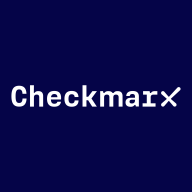

GitLab and Checkmarx Software Composition Analysis are strong contenders in the DevOps and security scanning categories, respectively. GitLab has the upper hand in repository management and CI/CD capabilities, while Checkmarx excels in security scanning and comprehensive vulnerability assessments.
Features: GitLab is renowned for repository management, CI/CD pipelines, and integration flexibility, enabling effective software development. Its unified platform supports code reviews, deployments, and various DevOps activities. Checkmarx Software Composition Analysis is recognized for its security scanning, identifying open-source vulnerabilities, and providing comprehensive security assessments.
Room for Improvement: GitLab needs better integration with container platforms and third-party tools like AWS and Jira. Improved metrics, testing capabilities, and documentation are also needed. Checkmarx could improve by reducing false positives, offering better pricing, and enhancing configurability and dynamic analysis support.
Ease of Deployment and Customer Service: GitLab offers versatile deployment options such as public, private, hybrid clouds, and on-premises, adaptable to organizational needs. Support varies with licensing, with community forums for free users. Checkmarx supports on-premises and public cloud deployments, with support dependent on licensing, highlighting system stability.
Pricing and ROI: GitLab's pricing includes free and paid tiers, with the open-source model appealing despite costly premium transitions. Users value its feature richness. Checkmarx has a complex, costly licensing model, yet its robust security benefits justify the expense for users needing strong security. Both provide significant ROI, appealing based on specific needs and budgets.
| Product | Market Share (%) |
|---|---|
| GitLab | 4.0% |
| Checkmarx Software Composition Analysis | 2.4% |
| Other | 93.6% |


| Company Size | Count |
|---|---|
| Small Business | 7 |
| Large Enterprise | 8 |
| Company Size | Count |
|---|---|
| Small Business | 36 |
| Midsize Enterprise | 10 |
| Large Enterprise | 43 |
Checkmarx Software Composition Analysis (SCA) helps organizations manage the risks associated with open source and third-party components in their software applications. While leveraging open source libraries and third-party dependencies is common practice, it can also introduce security vulnerabilities and license risks.
Checkmarx SCA offers a multifaceted approach to managing these risks by:
Automatically scanning project repositories, build configurations, and manifests to create a comprehensive inventory of all components, including version information and associated licenses.
Performing vulnerability assessments on each component, including identifying and prioritizing actual exploitable or reachable vulnerabilities.
Protecting organizations from software supply chain attacks involving malicious packages, such as the XZ Utils backdoor.
Identifying licenses associated and providing insights into license obligations, restrictions, and potential conflicts.
Integrating seamlessly into existing development workflows and CI/CD pipelines.
Providing actionable remediation guidance to help organizations address identified vulnerabilities and compliance issues effectively.
GitLab offers a secure and user-friendly platform for CI/CD pipeline management, code repository control, and collaboration, enhancing development speed and efficiency. It facilitates automation with extensive customization and tool integration, ideal for DevOps processes.
GitLab supports source code management, version control, and collaborative development. It's frequently used in CI/CD processes to automate builds and deployments while integrating DevOps practices. GitLab allows companies to manage repositories, automate pipelines, conduct code reviews, and maintain development lifecycles. The platform supports infrastructure and configuration management, enabling efficient code collaboration, deployment automation, and comprehensive repository handling. Many organizations commit and deploy developed code using GitLab's capabilities.
What are GitLab's most valuable features?In specific industries, GitLab serves as a backbone for source code management and CI/CD implementation. Companies leverage its capabilities for infrastructure management and deployment automation, thus streamlining project delivery timelines. Its ability to handle configuration management and code repositories effectively aids in maintaining development lifecycles, making it a preferred choice for organizations committed to enhancing their DevOps practices.
We monitor all Software Composition Analysis (SCA) reviews to prevent fraudulent reviews and keep review quality high. We do not post reviews by company employees or direct competitors. We validate each review for authenticity via cross-reference with LinkedIn, and personal follow-up with the reviewer when necessary.